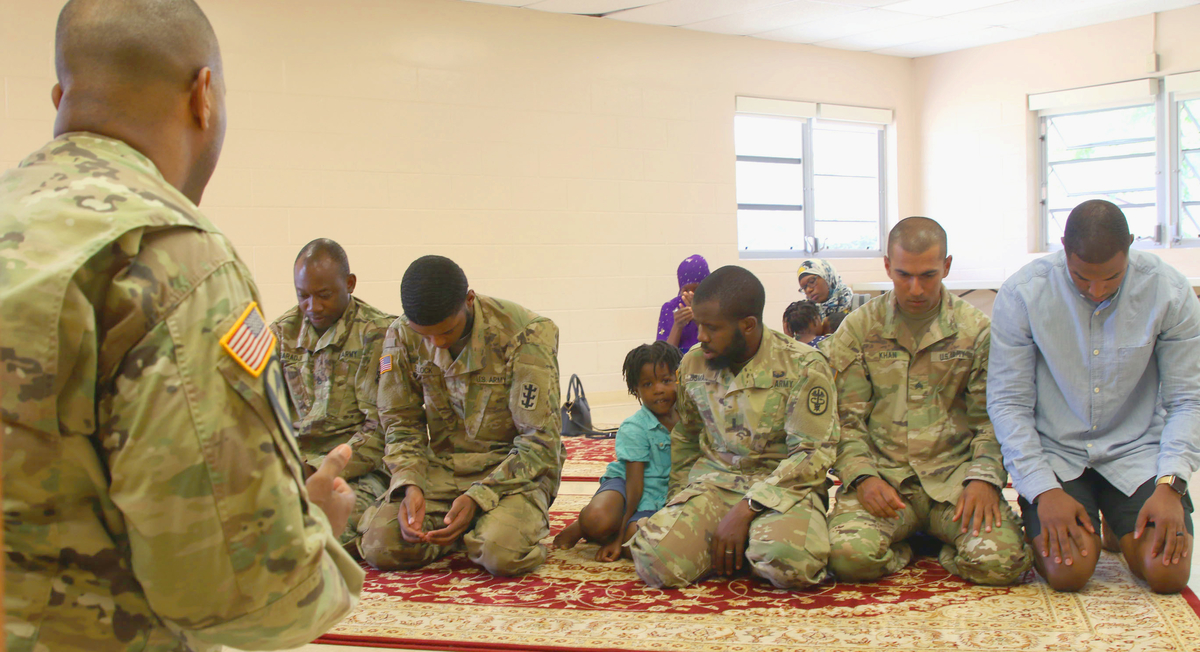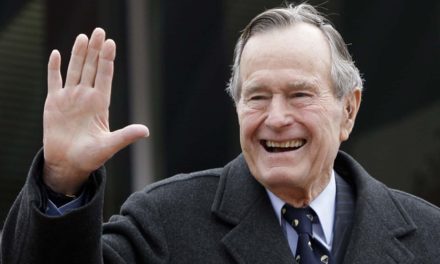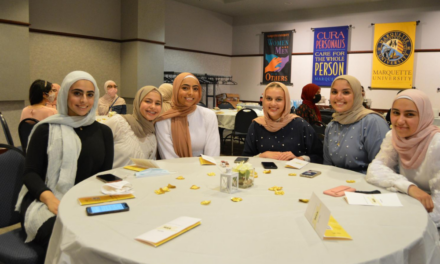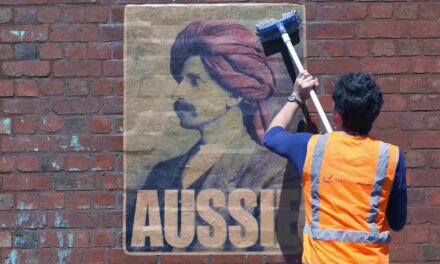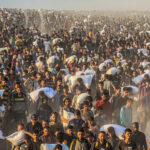As the long Memorial Day weekend approaches, it’s a fitting time to remember those who have served in the U.S. military and paved the way for a diverse and more accepting military.
Among that demographic are approximately 5,000 Muslims who are currently serving throughout the ranks of the U.S. armed forces. It’s hard to question the patriotism of American Muslims when last year’s annual report from the Institute for Social Policy and Understanding found that Muslims are just as if not more likely to serve in the military, compared to other religious groups and non-religious Americans.
During Ramadan this year, U.S. Army Captain Malik Shakoor visited soldiers at the base in Vicenza, Italy, where he shared his story of becoming an army chaplain. Shakoor reveals he became homeless after he graduated from the University of Maine, and after a year of living in his car, he enlisted in the Army and was sent to Fort Hood, Tx.
While attending basics, he met a Muslim chaplain who then became his mentor as they bonded over similar life experiences. Shakoor now mentors soldiers of all faiths, many of whom say they have never met a Muslim chaplain.
“I want to be there for Soldiers, whether they’re Christian, Muslim, Jewish, Buddhist, or they believe nothing at all,” Shakoor said. “I want to be that to them as my mentor was to me, and then some.”
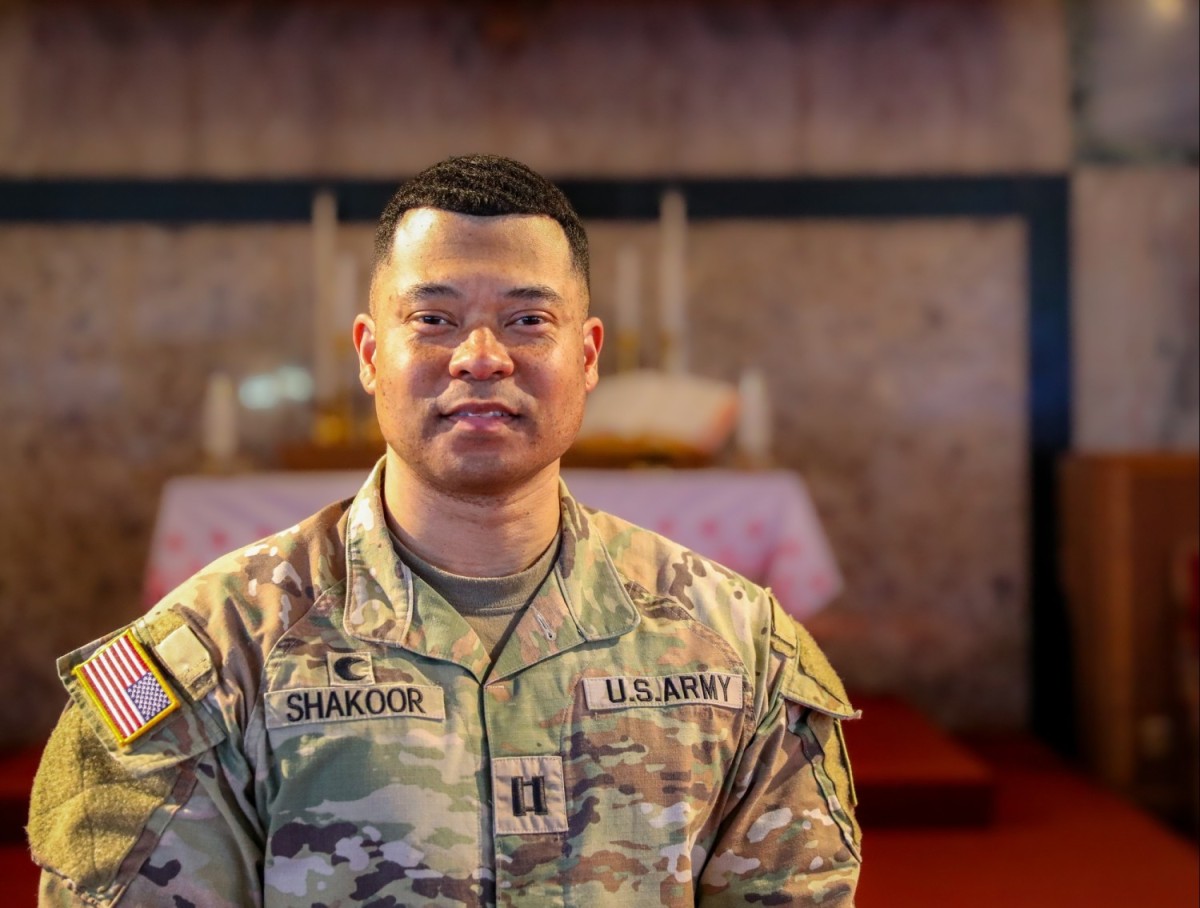
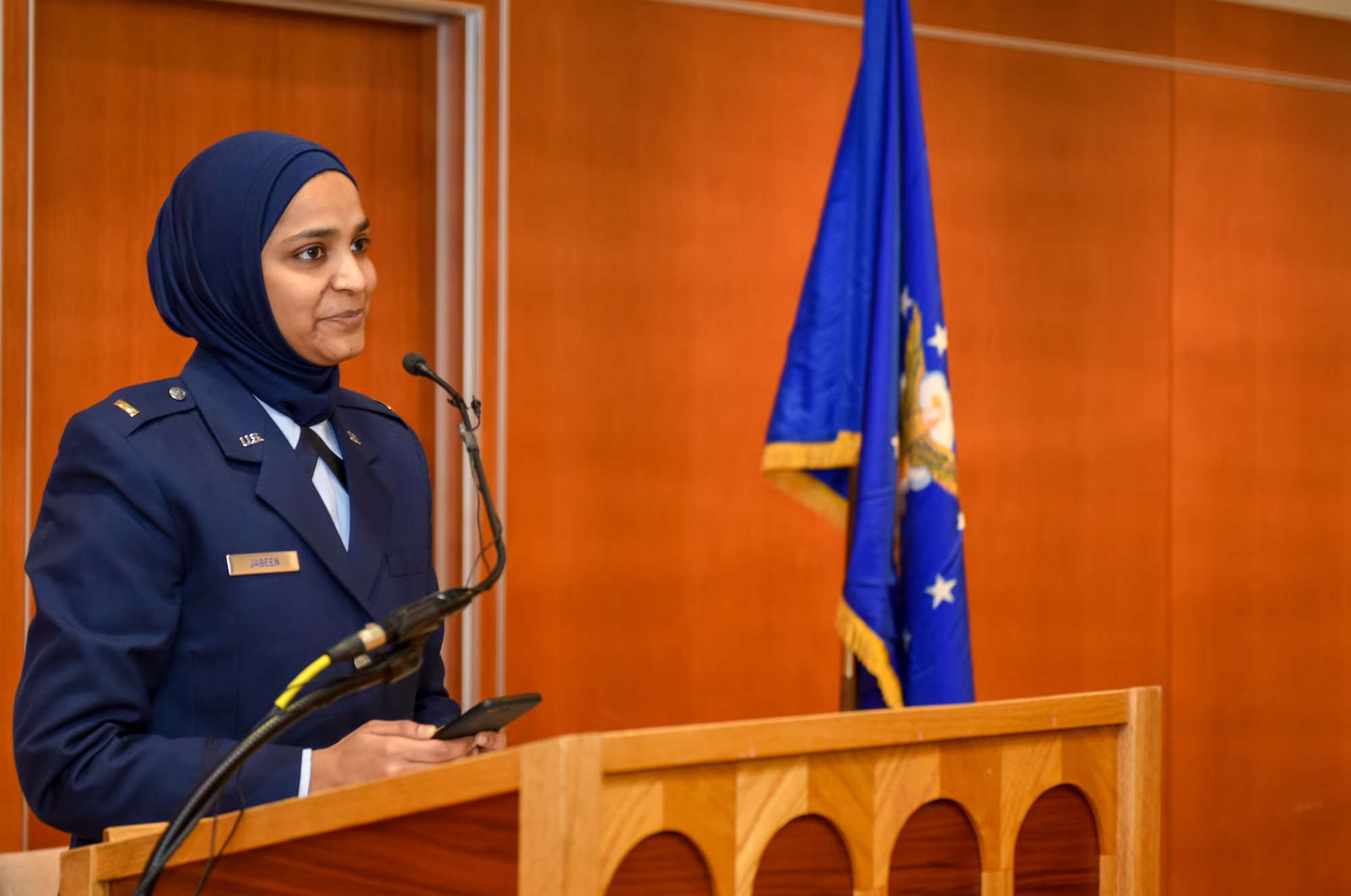
Saleha Jabeen became the first female Muslim chaplain in the Department of Defense in 2021 when she graduated from the Air Force Basic Chaplain Course. Jabeen, born in India, says she is grateful she does not have to compromise her religion.
“I am surrounded with people who respect me and are willing to receive what I bring to the table as a woman, a faith leader, and an immigrant … I get to provide spiritual care to all service members, Guardians and families and advise the commanders on religious and moral matters regardless of my faith, ethnicity or gender. Like our boss says, it has never been a better time to serve as a chaplain in the U.S. Air Force Chaplain Corps,” said First Lieutenant, Jabeen.
The Army appointed its first division-level Muslim chaplain, Khallid Shabazz, in 2017. Lieutenant Colonel Shabazz grew up Christian and later converted to Islam while serving as an enlisted soldier. He has traveled the world as a professional military religious advisor, leader and ethics instructor.
“What has served me well is I was Christian for 28 years,” the chaplain said. “I know both sides; I want to meet people where they are. If they come in and they are struggling with faith, I am not opposed to giving them their scripture and telling them how they can strengthen themselves.”
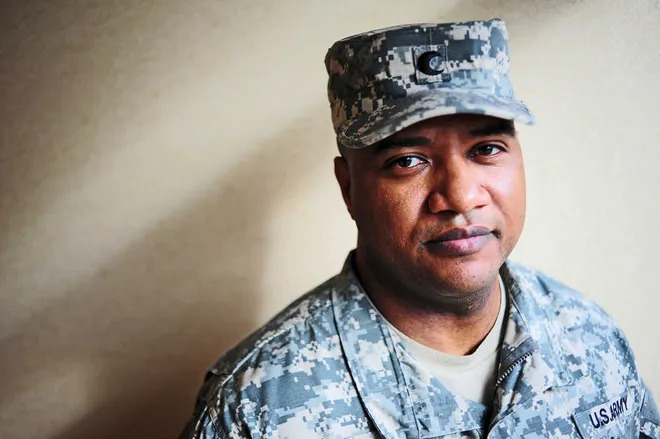
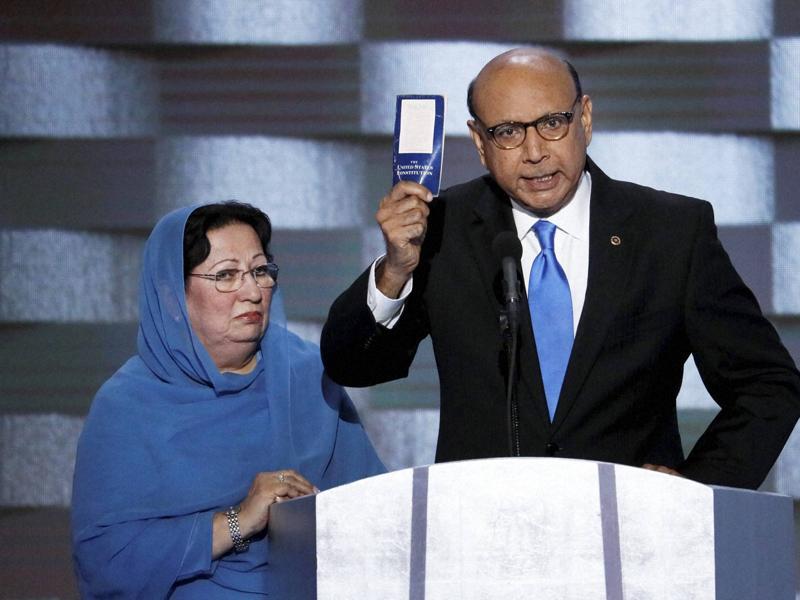
Most people will recall the bitter fallout over Donald Trump’s proposed Muslim Ban, leading up to the 2016 presidential elections. A speech by a Gold Star Pakistani American father electrified the Democratic National Convention, as Khizr Khan condemned the then GOP presidential nominee, recalling how his son died serving in Iraq while Trump had “sacrificed nothing” for his country.
U.S. Army Captain Humayun Khan had been killed after attempting to stop two suicide bombers outside his base in Baquabah in 2004. He was posthumously awarded a Bronze Star and Purple Heart for his bravery and efforts to build relations between Iraq and the U.S.
Last year President Biden honored his father with the Presidential Medal of Freedom, the nation’s highest civilian honor. This was in part due to Khan’s continued advocacy for religious freedom and the sanctity of the U.S. Constitution.
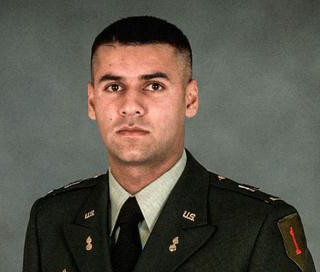

It’s believed that around 20 to 30 percent of enslaved Africans brought to the U.S. were Muslims and Muslims have served in the U.S. military as far back as the American Civil War. They came from diverse groups, both enslaved and free individuals, as well as immigrants from various regions such as West Africa, the Middle East and South Asia.
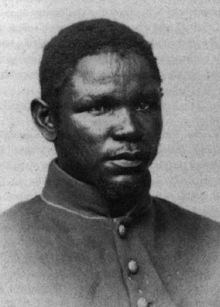
One notable individual, known as Nicholas Said was an African-born scholar and soldier. Said was a linguist and military officer who served in the Union Army during the Civil War. He held the rank of sergeant major and worked as a recruiter of African American soldiers for the Union cause.
Nearly 400,000 Muslims fought in the British Indian Army during World War 1. They faced various challenges and hardships, including combat, harsh conditions and the impact of the war on their families and communities. The war also had political and cultural repercussions in the Muslim world, contributing to shifts in power dynamics and nationalist movements.
It was soon after the Second World War ended in 1945, when Muslims again served the U.S. and other Western allies, that countries such as India and Pakistan were partitioned after finally being granted Independence.
